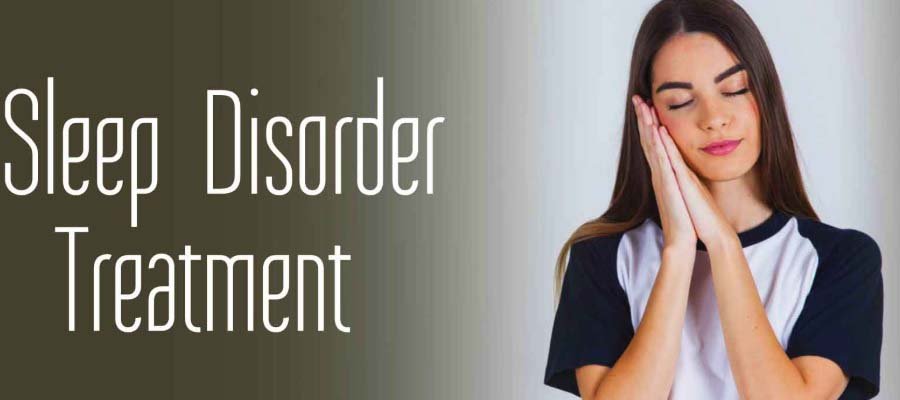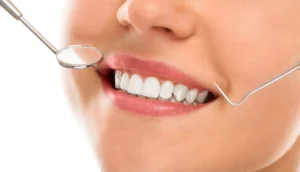**Unlocking the Secrets to Restful Nights: Your Guide to Sleep Disturbance Treatment**Are sleepless nights leaving you groggy and grumpy? You’re not alone! Millions of people struggle with sleep disturbances that can throw their lives into disarray. But fear not—restful slumber is within reach! In this comprehensive guide, we’ll explore effective treatment options tailored to your specific needs, from lifestyle changes and natural remedies to cutting-edge therapies. Whether it’s occasional tossing and turning or chronic insomnia, our expert-backed guidelines will empower you with the knowledge you need to reclaim your nights and wake up rejuvenated. Say goodbye to restless evenings and hello to sweet dreams—let’s dive in!
Introduction To Sleep Disturbances
Sleep is essential for our well-being. Yet, many people struggle with sleep disturbances that disrupt their nightly rest. Tossing and turning, staring at the ceiling, or waking up feeling exhausted can become a frustrating routine. But what causes these disruptions? And more importantly, how can we effectively tackle them?
Understanding sleep disturbances is crucial as they affect not just our nights but also our days. Whether you’re dealing with insomnia, sleep apnea, or restless leg syndrome, knowing your options is key to reclaiming restful slumber. In this guide to sleep disturbance treatment guidelines, we’ll explore various causes of sleeplessness and delve into effective treatments available today.
From medications to lifestyle changes and alternative therapies, various paths exist toward better sleep hygiene. Let’s embark on this journey together—your path to peaceful nights awaits!
Common Causes Of Sleep Disturbances
Sleep disturbances can stem from various factors, each affecting individuals differently. Stress and anxiety often top the list. When racing thoughts invade our minds at night, restful sleep becomes elusive.
Environmental elements play a significant role too. Noise, light, or an uncomfortable mattress can disrupt even the deepest slumber.
Another common culprit is lifestyle choices. Consuming caffeine or alcohol close to bedtime may interfere with sleep cycles and lead to restless nights.
Medical conditions such as chronic pain or respiratory issues are also frequent offenders. These ailments can make it hard for anyone to settle into a peaceful state of rest.
Then there are hormonal changes that affect many people at different life stages—puberty, pregnancy, and menopause all bring about fluctuations that influence sleep patterns significantly.
Understanding these causes is key in addressing sleep disturbance treatment effectively.
Overview Of Treatment Options For Sleep Disturbances
When tackling sleep disturbances, it’s essential to explore various treatment options tailored to individual needs.
Medications can offer quick relief for some individuals. Prescription drugs and over-the-counter solutions are available but should be used with caution due to potential side effects.
Cognitive Behavioral Therapy (CBT) presents a different approach, focusing on changing thoughts and behaviors that affect sleep patterns. This method has gained traction for its effectiveness in promoting long-term changes without relying solely on medications.
Lifestyle changes play a vital role too. Simple adjustments like maintaining a consistent sleep schedule or creating a calming bedtime routine can significantly enhance sleep quality.
Alternative therapies also deserve mention. Practices such as acupuncture or mindfulness meditation may help alleviate stress and promote relaxation, offering additional support alongside traditional treatments. Each option presents unique benefits worth considering for those struggling with sleepless nights.
– Medications
Medications play a significant role in managing sleep disturbance treatment. They can help regulate sleep patterns and improve overall restfulness.
Typically, doctors prescribe sedatives like benzodiazepines for short-term relief. These medications can be effective but may lead to dependency if used long-term.
Non-benzodiazepine sleep aids are another option. Drugs such as zolpidem and eszopiclone tend to have fewer side effects related to addiction, making them popular choices.
Antidepressants might also be prescribed, especially when anxiety or depression contributes to sleep issues. Low doses can sometimes promote better sleep without the high risks associated with traditional sleeping pills.
Always consult a healthcare professional before starting any medication regimen. Individual responses vary significantly, so what works for one person may not work for another. Monitoring is essential to find the right fit while minimizing potential side effects.
– Cognitive Behavioral Therapy (CBT)
Cognitive Behavioral Therapy (CBT) is a powerful tool for addressing sleep disturbances. It focuses on the connection between thoughts, feelings, and behaviors. Many people experience anxiety or negative thought patterns that can disrupt their sleep.
Through CBT, individuals learn to challenge these unhelpful thoughts. This helps create healthier thinking patterns that promote relaxation and better sleep quality. The therapy typically involves structured sessions with a trained therapist who guides patients through specific techniques.
One effective method within CBT is sleep restriction therapy. Patients are encouraged to limit time spent in bed to only when they are actually asleep. This approach helps consolidate sleep disturbance treatment and improve overall restfulness.
Another key aspect of CBT is developing good pre-sleep routines. Techniques such as mindfulness meditation or guided imagery can be incorporated into one’s evening ritual, making it easier to unwind at night.
– Lifestyle Changes
Making lifestyle changes can significantly improve sleep quality. Small adjustments in daily routines often yield big results.
Start with a consistent sleep schedule. Going to bed and waking up at the same time helps regulate your body’s internal clock. This simple habit promotes better rest.
Nutrition plays a vital role too. Avoid heavy meals close to bedtime, as they can disrupt sleep. Instead, opt for light snacks if you’re hungry.
Physical activity is another essential factor. Regular exercise reduces stress and anxiety, making it easier to fall asleep. Aim for at least 30 minutes of moderate activity most days.
Creating a soothing bedtime routine also matters. Engage in relaxing activities like reading or taking a warm bath before bed to signal your body that it’s time to wind down.
Lastly, limit screen time in the evening; blue light from devices interferes with melatonin production and hinders restful sleep.
– Alternative Therapies
Alternative therapies offer a holistic approach to addressing sleep disturbance treatment. These methods focus on the mind-body connection, often providing relief without pharmaceuticals.
Acupuncture is one popular option. It involves inserting fine needles into specific points on the body, which may help balance energy and promote relaxation. Many find this technique enhances their ability to fall asleep more easily.
Another avenue is aromatherapy. Essential oils like lavender and chamomile are known for their calming properties. Using these scents in your evening routine can create a soothing atmosphere conducive to sleep disturbance treatment.
Mindfulness meditation serves as an effective alternative therapy too. Practicing mindfulness helps calm racing thoughts and reduces anxiety, making it easier to slip into restful slumber.
These therapies can complement traditional treatments or stand alone for those seeking natural solutions for sleep issues. Exploring these options might just lead you toward a better night’s rest.
Guidelines for Treating Sleep Disturbances
When addressing sleep disturbances, it’s crucial to employ evidence-based approaches. Utilize validated techniques that have shown effectiveness in clinical studies. This ensures that treatment is grounded in reliable research.
Individualized treatment plans are key for success. Every person’s experience with sleep issues is unique, so understanding the specific triggers and symptoms will help tailor an effective strategy.
Monitoring progress plays a significant role too. Regular follow-ups can provide insights into what methods work best and allow adjustments as needed. Keeping track of changes can highlight improvements or setbacks over time.
Incorporating feedback from patients offers valuable data, making it easier to refine techniques and enhance overall outcomes. By considering these guidelines collectively, Healthcare Providers can create a comprehensive approach to treating sleep disturbances effectively.

– Evidence-Based Approaches
Evidence-based approaches are essential in addressing sleep disturbances. They leverage scientific research to inform treatment decisions, ensuring that patients receive effective care tailored to their needs.
One prominent method is the use of Cognitive Behavioral Therapy for Insomnia (CBT-I). This evidence-backed therapy focuses on changing unhelpful thoughts and behaviors related to sleep. Numerous studies have demonstrated its effectiveness over medication alone.
Additionally, pharmacological treatments can be guided by clinical trials and meta-analyses, providing insights into which medications yield the best outcomes with minimal side effects.
Sleep hygiene practices also benefit from an evidence-based framework. Guidelines derived from extensive research help individuals create optimal environments conducive to rest.
Utilizing these proven strategies not only enhances treatment efficacy but also empowers patients with knowledge about their conditions and choices available for managing them effectively.
– Individualized Treatment Plans
Individualized treatment plans are essential in addressing sleep disturbances effectively. Each person’s experience with sleep issues is unique, influenced by various factors such as lifestyle, medical history, and emotional well-being.
Creating a tailored plan involves thorough assessments by healthcare professionals. They consider the individual’s specific symptoms and triggers before recommending interventions.
For some, medication may be necessary to manage insomnia or anxiety affecting sleep. Others might find success through cognitive behavioral therapy (CBT), which targets unhelpful thought patterns.
Lifestyle changes can also play a significant role. Adjustments like establishing a bedtime routine or improving sleep hygiene might suit many individuals better than pharmacological solutions.
Monitoring progress is crucial in these individualized approaches. Regular follow-ups allow for modifications based on what works best for each person, ensuring optimal results over time.
Monitoring and Follow-Up
Monitoring and follow-up are crucial in managing sleep disturbance treatment effectively. After initiating a treatment plan, regular check-ins help assess progress and identify any ongoing issues.
Using tools such as sleep diaries or apps can provide valuable insights into patterns over time. This data allows healthcare providers to understand the effectiveness of different strategies implemented.
Adjustments may be necessary based on individual responses to treatments. Some patients might find certain medications less effective after a while, while others may benefit from additional interventions like CBT or lifestyle changes.
Follow-ups also serve as an opportunity for discussions about any side effects experienced during medication use. Open communication is vital; it ensures that adjustments align with personal comfort levels and health goals.
Engaging actively in this process fosters accountability, encouraging individuals to take charge of their sleep health journey.
Case Studies: Successful Treatment of Sleep Disturbances
Case studies provide valuable insight into effective treatment strategies for sleep disturbances. One notable example involved a 35-year-old woman struggling with insomnia linked to anxiety. After a thorough assessment, she engaged in Cognitive Behavioral Therapy (CBT), focusing on identifying negative thought patterns and implementing relaxation techniques. Within weeks, her sleep quality improved significantly.
Another case featured an older gentleman diagnosed with obstructive sleep apnea. His treatment plan included lifestyle changes such as weight management and the use of a CPAP machine for better airflow during the night. This combination led to transformative results—he reported feeling more energetic and less fatigued throughout the day.
Additionally, a young adult experiencing restless legs syndrome found relief through alternative therapies like acupuncture and herbal remedies. These approaches helped alleviate symptoms without relying solely on medications. Each journey highlights personalized care tailored to individual needs can lead to successful outcomes in treating sleep disturbances.
Tips for Improving Sleep Quality Naturally
Creating a calming bedtime routine can significantly enhance sleep quality. Try to wind down with activities like reading or gentle yoga, allowing your body and mind to relax.
Maintaining a consistent sleep schedule is essential. Go to bed and wake up at the same time each day, even on weekends. This consistency helps regulate your body’s internal clock.
Consider your sleeping environment as well. Make sure your bedroom is dark, quiet, and cool. Invest in comfortable bedding that suits your preferences for optimal rest.
Limiting screen time before bed is also crucial. The blue light emitted by devices can interfere with melatonin production, making it harder to fall asleep.
Lastly, watch what you consume in the evening. Avoid large meals, caffeine, and alcohol close to bedtime; these can disrupt natural sleep patterns and leave you feeling restless during the night.
Conclusion: The Importance of Seeking Professional Help for Persistent Sleep Disturbances
Persistent sleep disturbances can significantly affect your overall well-being. When sleepless nights become a regular part of life, it’s essential to recognize when professional help is needed. Relying solely on home remedies or over-the-counter solutions may not address the underlying issues contributing to poor sleep.
Consulting with Healthcare professionals ensures that you receive personalized care tailored to your unique situation. They can offer evidence-based treatment options and help develop an individualized plan that considers your specific needs and lifestyle. Regular monitoring and follow-up appointments are crucial in assessing progress and making necessary adjustments.
Seeking professional assistance opens the door to effective treatments, such as cognitive-behavioral therapy or appropriate medications, which have proven successful for many individuals experiencing similar challenges. You don’t have to navigate this journey alone; support is available.
Ultimately, prioritizing quality sleep is vital for maintaining physical health, emotional balance, and overall quality of life. If you’re struggling with persistent sleep disturbance treatment, reaching out for professional guidance could be one of the best decisions you make for yourself.











